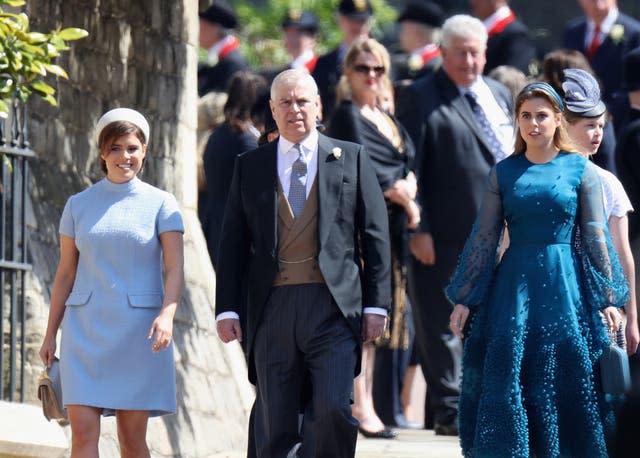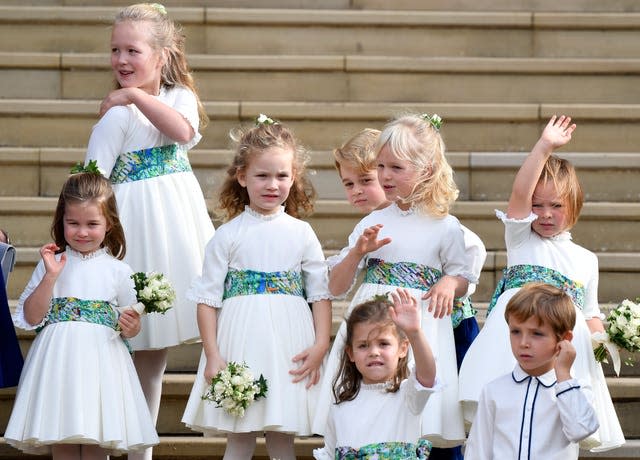Where will Harry and Meghan’s baby fall in the line of succession?
The Duke and Duchess of Sussex’s new baby will be eighth in line to the throne.
The first seven places will remain unchanged – the Prince of Wales, the Duke of Cambridge, Prince George, Princess Charlotte, Prince Louis, Harry, and Archie Mountbatten-Windsor.
Harry retained his place in the line of succession despite quitting royal life, and dropping his HRH style.
When Harry and Meghan’s new addition arrives, the Duke of York, who was born second in line in 1960, will move down to ninth place.
Two new photographs of The Prince of Wales and his family have been released to celebrate HRH’s 70th birthday.
The photos were taken by Chris Jackson in the garden of Clarence House. pic.twitter.com/A2LTJDTdvE
— The Prince of Wales and The Duchess of Cornwall (@ClarenceHouse) November 13, 2018
Andrew stopped carrying out royal duties in 2019 following his controversial Newsnight interview over his friendship with convicted paedophile Jeffrey Epstein.
The Prince of Wales
The Duke of Cambridge
Prince George
Princess Charlotte
Prince Louis
The Duke of Sussex
Archie Mountbatten-Windsor
New Sussex baby
The Duke of York
Princess Beatrice
Princess Eugenie
Princess Eugenie's son
The baby boy or girl will enter the line of succession behind older brother Archie.
Andrew’s eldest daughter, Princess Beatrice, will move to 10th in line.
His youngest, Princess Eugenie, will fall out of the top 10 to become 11th in line, and her newborn son will move to 12th place.

Baby Sussex will either be the Queen and the Duke of Edinburgh’s 10th or 11th great-grandchild, depending on whether he or she is born before or after Zara Tindall’s baby.
The monarch and Philip’s great-grandchildren so far are: Savannah and Isla Phillips; George, Charlotte and Louis; Mia and Lena Tindall; Archie, and Princess Eugenie’s baby boy.
The new baby will not be entitled to be an HRH nor be a prince or a princess due to rules set out more than 100 years ago by George V.
Savannah Phillips
Isla Phillips
Prince George
Mia Tindall
Princess Charlotte
Prince Louis
Lena Tindall
Archie Mountbatten-Windsor
Princess Eugenie's Baby
Zara Tindall's Baby/Baby Sussex
Zara Tindall's Baby/Baby Sussex
He or she is allowed to be a Lord or a Lady, but, in keeping with Harry and Meghan’s wishes, will be a plain Master, like Archie, or Miss (first name) Mountbatten-Windsor instead.
As the first-born son of a duke, Archie could have become Earl of Dumbarton – one of Harry’s subsidiary titles – or been Lord Archie Mountbatten-Windsor.
But the duke and duchess broke with royal convention by making a personal decision not to use a title, thought to be inspired by Harry’s wish to have been a normal child, rather than a prince, as he grew up.

The baby will, however, like Archie, be entitled to be an HRH and a prince or princess when the Prince of Wales accedes to the throne – although it is thought unlikely that Harry and Meghan will opt for such a change.
The new baby will not require the monarch’s permission to marry.
For hundreds of years, the Royal Marriages Act 1772 meant descendants of George II had to seek the sovereign’s consent before they wed, otherwise their marriages were deemed invalid.

But this law was repealed through the Succession to the Crown Act.
It restricted the consent to just the first six people in the line of succession, so, as the new baby is eighth in line, they will not at present need to seek a monarch’s approval to wed.
They may have to do so in the future though, when the Duke of Cambridge eventually becomes king and if there have been no further additions ahead of them in the succession line.
King George III, George II’s grandson, had ordered the now repealed 1772 Act after his younger brother, the Duke of Cumberland, secretly married Lady Anne Horton, deemed to be a highly disreputable widow of a commoner.


